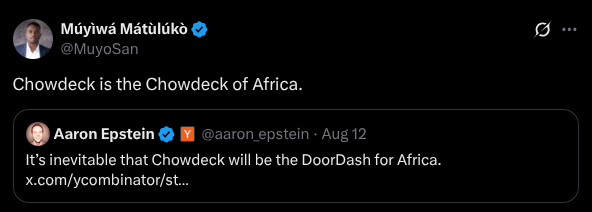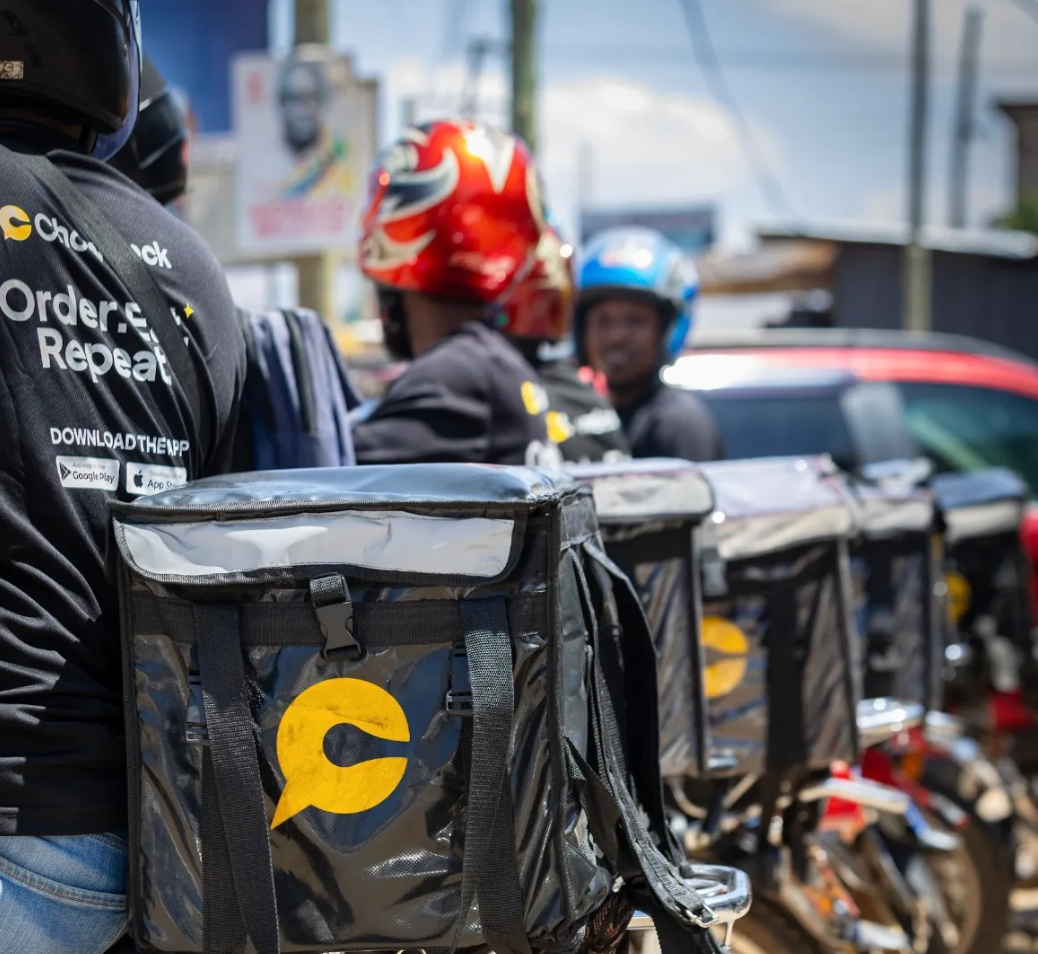

“DoorDash of Africa” is catchy for timelines and pitch decks, but the more accurate line is simpler: Chowdeck is the Chowdeck of Africa. The discourse matters because it frames what the company is really doing; using a last mile machine to bend retail to time. A logistics spine designed for African cities, where the constraint is minutes.
Founded in October 2021 by Femi Aluko (ex-Paystack principal engineer), Olumide Ojo (ex-Paystack), and Lanre Yusuf (former engineering lead at Crown Interactive), Chowdeck launched in Lagos, joined YC’s S22 batch, and in its first seven months grew from an average of 40 to an average of 650 daily orders.

Chowdeck's playbook is really compact: a single consumer app that ships hot meals, groceries, meds, and market staples “within minutes.” It has two product levers; Chowpass (a free delivery subscription model) and Relay (send packages). That surface area tells you the intention; aggregate everyday demand, at arms reach supply, and keep riders busy across categories all day. Calling Chowdeck a delivery app seems too simplified these days, when it behaves like retail infrastructure.

Then the big news, this August Chowdeck raised a $9M Series A led by Novastar and YC participation to roll out dark stores, micro fulfilment hubs that pull inventory closer to neighborhoods, opening 40 centers by year end and targeting 500 centers by 2026.
That’s not a "delivery" app tweak. It’s a merchant plus inventory strategy that turns “fast delivery” into a retail moat. They pair this with scale that actually matters: 1.5M customers, 20k+ riders,and 30 minute average delivery times, with a surprising share completed by bicycle in dense zones. Green :)


This moat also travels. Chowdeck’s Ghana entry in May 2025 ran up to an average of 1,000 daily orders within three months, without paid ads!.

If you zoom out to the market, the timing is sharp. Jumia and Konga taught Nigerians the marketplace habit, but the country’s delivery economy has been a rotating cast; the real contest is reliability under inflation and Chowdeck’s thesis is that time is the new SKU, treating delivery time like the product itself, and their latest moves back this!

So no, this isn’t about being a tidy analog to an American success. It’s about building an African city native commerce network where “delivery” is just the interface and time is the product. The DoorDash comparison is fine as a compass for outsiders; but the architecture under the hood is different. Dark stores over distant warehouses, Mira at the till, a rider graph that can carry lunch, antibiotics, or a forgotten charger with equal ease. That’s the blueprint Chowdeck is laying down, and if their hubs come online on schedule, they won’t just compete with Jumia or Konga on catalog, they’ll compete on minutes.
picture credits from chowdeck.com
